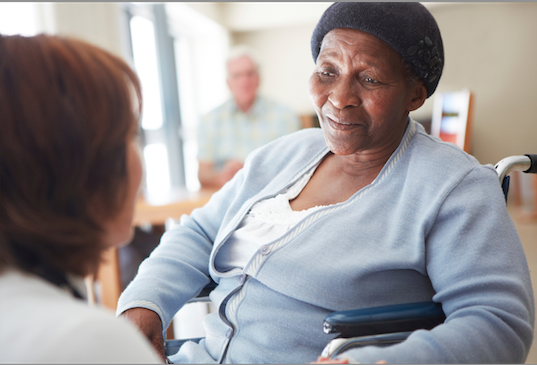The Seven Basic Skills Sets
Author: Dick Bolles
Let's Start with Whether or Not You Are Handicapped

Q. "I am handicapped. Do you have any special advice about a career for someone like me?
A. Well, yes, I certainly do. Based on over 40 years of working with people who are, or feel they are, handicapped. . Let's begin with some simple truths.
There are thousands of skills in the world; no one has all of them.
Our culture calls some people 'handicapped,' as though the rest of us were Omni-competent. We are not.
Were all the skills in the world put on one checklist, and submitted to each of us, there would be tons of unchecked skills on everybody's sheet!
That's because all of us have abilities (things we can do) and 'disabilities' (things we cannot do). In that sense, everyone of us is 'handicapped.'
To be sure, not all 'handicaps' are created equal. Things some of us cannot do are merely "interesting," or "challenging," while things others cannot do are so basic to life that we are moved to tears when we see anyone live a triumphant life with that handicap - without whining or complaint.
Degree of handicap may indeed vary widely. But everyone of us is both 'abled,' and 'disabled.'
Each of us must define ourselves not in terms of what we can't do, but in terms of what we can.
Normally, those of us who are not labeled as 'handicapped' in our culture, don't go out of our way to call a stranger's attention to the things that we can't do.
For example, in my case, I can't compose music, I'm not good at athletics, and I'm a disaster at accounting. But these are not the first things I think to mention, when I meet a stranger.
What I do mention, when asked about myself, is that I'm good at writing, designing, and teaching others how to make their life really work. I tell them what I can do.
That's normal. But then we turn around, as a culture, and tell certain people to think of themselves as 'handicapped,' which of course draws everyone's attention, first and foremost, to what they can't do.
So, the special advice I give to anyone dealing with what the world calls a 'handicap' is this: Forget what you can't do, and put all your energy into learning to describe what you can do. Then choose a career, based on that.
In this connection, it is helpful to think of human nature in terms of seven basic gifts, asking yourself which one (or more) of these seven you have been given. Is it:
- 1. Social Skills. Being good with people. You like to be with them, serve them, help them, and you make a good friend. Or, is it:
- 2. Physical Skills. Being good with your body. You like to use your body, in communication: signing, dance, drama, sports, or in feats of great strength. Or, is it:
- 3. Musical Skills. Being good with sounds. You can mimic well, or create music, or tap out rhythms, or sing. Or, is it:
- 4. Picture Skills. Being good with images or pictures. You can create them in your head, or on a computer, or through drawing, poetry, painting, film, writing, or visualization. Or, is it:
- 5. Number Skills. Being good with numbers. You like to work with them, in your head, or on the computer, or on paper. You reason very carefully, step by step, very logically, in all things. Or, is it:
- 6. Word Skills. Being good with words. You like to read, you like to express yourself with words, and you use words well. Or, is it:
- 7. Intuitive Skills. Being good with the part of the world that cannot be seen. You understand people's feelings, you understand your own feelings, and you have a strong tie to faith and prayer.
Each of us then needs to find work that requires the skills we do have, and does not require the skills we don't have.
Don't just look up your handicap (by name) on the Internet. You're not likely to find much that will help you find a job. Instead, go to a meta-search engine like Indeed or Google, and type in the name of the 'skills you have and want to use. You will also find help with this, at the government site O*NET, although their skill sets deal more with knowledges, and what you might call "I have learned how to" instead of basic "I was born with this skill." O*NET's titles: Social Skills, Basic Skills, Complex Problem Solving Skills, Resource Management Skills, Systems Skills, and Technical Skills. ( http://www.onetonline.org/skills/ )
The STEP AHEAD program for ex-offenders has a very good workbook that is actually helpful to people with any handicap. ( http://www.iseek.org/exoffenders/ )
There are tools also for starting with particular fields or industries, finding a job you like within that field, and then the skills, tasks, or working conditions you must be able to handle in that job. Minnesota's iSeek program is particularly helpful with this. It also lists other careers that use those same skills. ( https://www.iseek.org/careers/occupational-skills.html, and https://www.iseek.org/careers/careersSearch# )